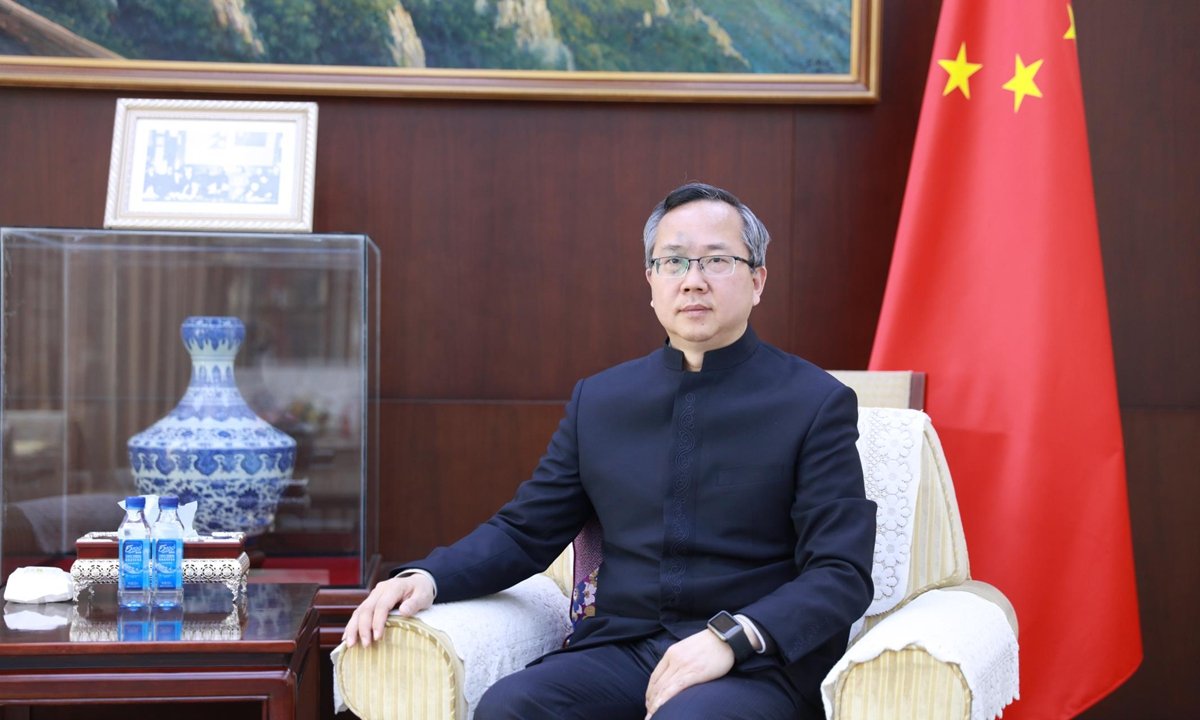On September 26, during Nepali Prime Minister Pushpa Kamal Dahal Prachanda’s official visit to China, both nations released a joint declaration underlining their commitment to fostering a high-grade Belt and Road Initiative (BRI) collaboration. Their shared vision encompasses areas such as infrastructure, trade, tourism, investment, and productive capacity. The consensus signifies the mutual aim to fortify BRI ties, benefiting the masses of both countries.
Following this significant diplomatic encounter, Chu Daye, a correspondent from Global Times, interviewed the Chinese Ambassador to Nepal, Chen Song. Their conversation touched upon the renewal of China-Nepal trade and economic relationship post-pandemic and what the future collaboration might entail.
Post-pandemic Resurgence in Bilateral Relations
When probed about the current state of China-Nepal interactions, especially in trade, travel, and interpersonal connections in the aftermath of the pandemic, Ambassador Chen elucidated that the collaboration has impressively rebounded from the COVID-19 setbacks. Remarkably, Nepal’s exports to China have catapulted, witnessing a growth of 118.3% in comparison to 2022 during the same period. The augmentation in trade was evident with Nepal exporting haylage to China for the first time. Furthermore, ports like Jilong, Zhangmu, and Pulan have resumed operations, allowing bi-directional passenger and freight traffic. Direct flights have made a notable return to their previous frequency, and by the conclusion of August, the influx of Chinese tourists in Nepal was approximately 32,000, making China the second-largest contributor to Nepal’s tourism sector for that month. Chen expressed his optimism about the anticipated growth in multiple sectors, emphasizing Trans-Himalayan connectivity, energy, agriculture, animal husbandry, and industrial parks. The ambassador emphasized China’s commitment to supporting Nepal in its endeavors to modernize agriculture, achieve energy self-reliance, upgrade industries, and bolster economic growth, benefiting its populace and preserving its sovereignty.
Significance of Nepali PM’s Visit
Ambassador Chen stressed the intrinsic value of the Nepali PM’s visit to China. The respect and significance China accords to its relationship with Nepal became evident through the series of high-level meetings conducted during the PM’s visit. From Nepal’s standpoint, there was a reiteration of their position, recognizing Tibet’s issues as China’s internal matter and a strong resolve against any anti-China separatist movements on Nepali terrain. The mutual agreement to explore untapped sectors, like the digital economy and industrial capability, could seamlessly integrate Nepal into China’s modern development trajectory.
Progress on Cross-border Electricity and Agriculture
Elaborating on cross-border electricity and agricultural cooperation, the ambassador mentioned the mutual agreement to advance energy projects, specifically focusing on hydropower and cross-border transmission infrastructures. Both nations have accentuated the urgency to initiate the Jilong/Keyrung-Rasuwagadhi-Chilime 220 KV Cross-Border Power Transmission line project. This collaboration will bolster Nepal’s electricity import-export capability. Concurrently, on the agricultural frontier, China has initiated the transfer of its cutting-edge agricultural technology to Nepal. The possibility of establishing a joint agricultural cooperative zone is being explored, with China’s objective to assist Nepal in agricultural modernization and uplifting its populace out of poverty. Additionally, with China providing a zero-tariff treatment for 98% of Nepali exports, the potential for increased agricultural trade is immense.
China-Nepal Railway: An Ambitious Endeavor
Regarding the much-anticipated China-Nepal railway project, Chen noted that it symbolizes a shared dream of both nations. The project, divided into the Chinese and Nepali sections, is gaining momentum with both countries hastening their efforts. Within China, the Xigaze-Jilong railway section is being developed as part of the 14th Five-Year Plan (2021-25), which includes extending the railway up to the Jilong Port. The feasibility studies, completed last year, have set a solid foundation for future developments. The envisioned railway will not only bolster Nepal’s economic prospects but also aid in its transformation from a landlocked to a land-linked nation.
A Decade of BRI: Achievements and Milestones
Celebrating the 10th anniversary of the BRI, Chen reflected on the accomplishments made since China and Nepal formalized their BRI cooperation in 2017. Their partnership has manifested in policy alignment, enhanced trade mechanisms, and a multidimensional connectivity network that encompasses ports, roads, railways, airways, and telecommunications. Additionally, China’s support in facilitating Nepali participation in major international expos has been noteworthy. The initiation of WeChat payment in Nepal and the provision of enhanced medical aid further strengthen the bilateral ties.
Read More:
